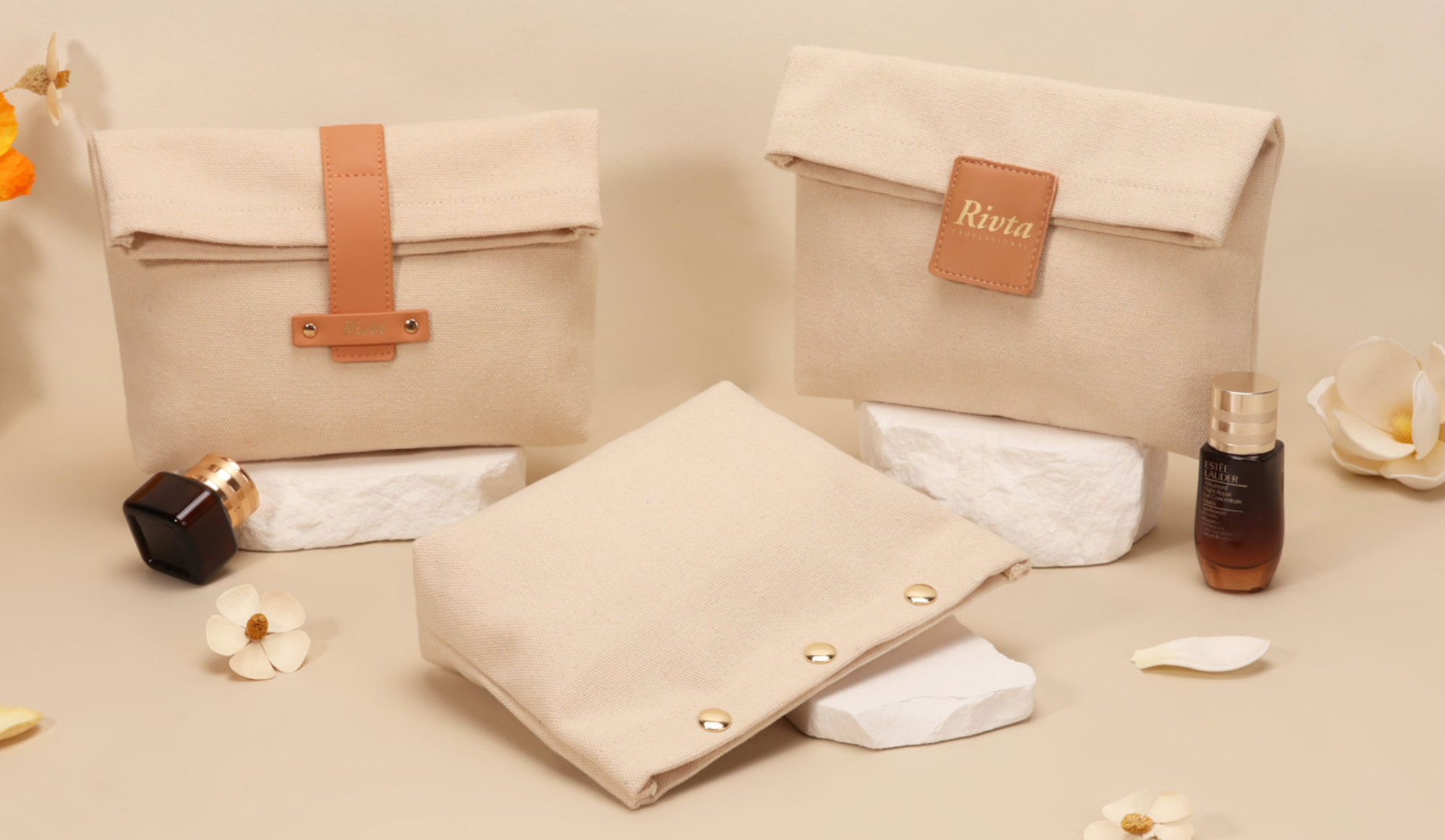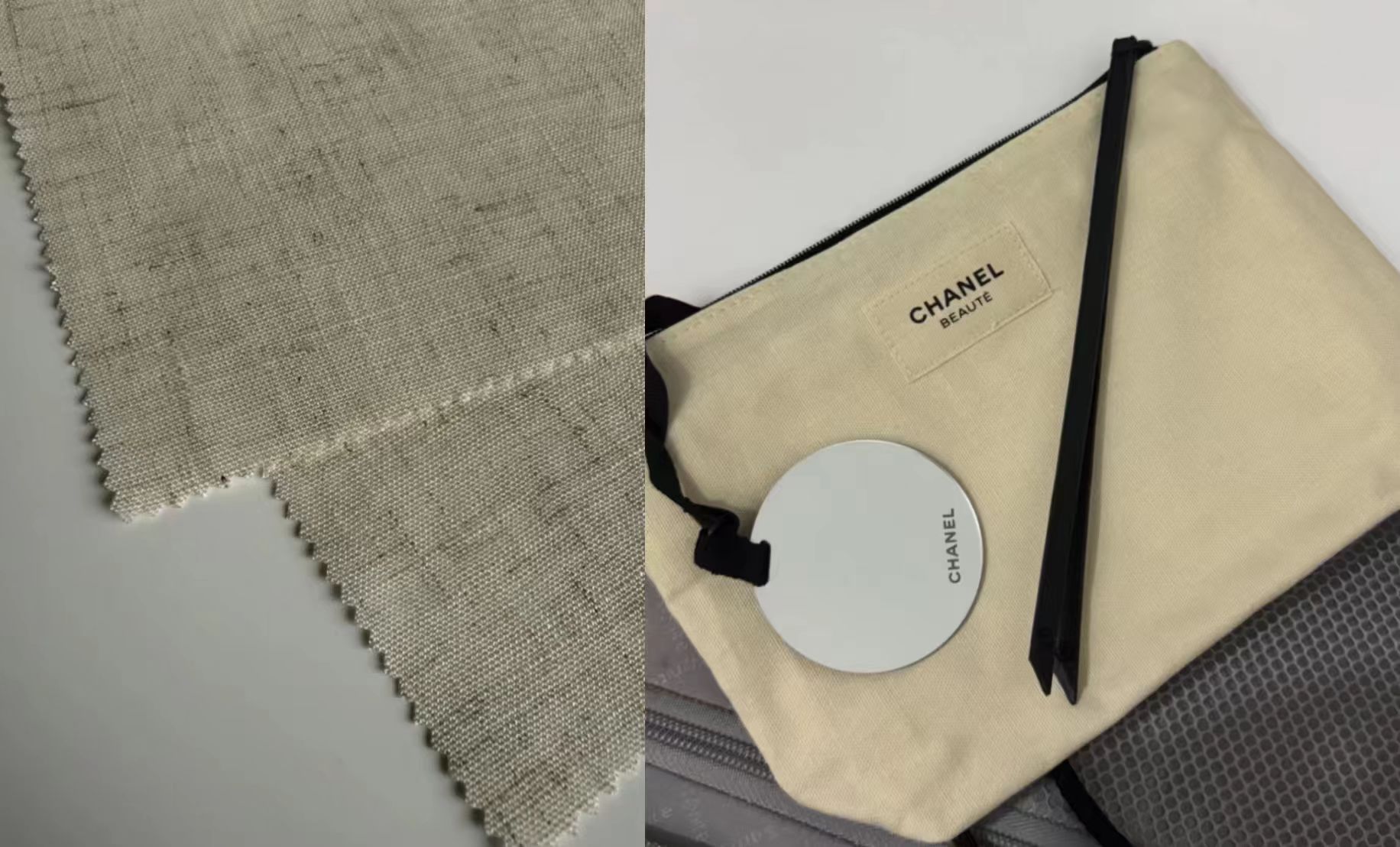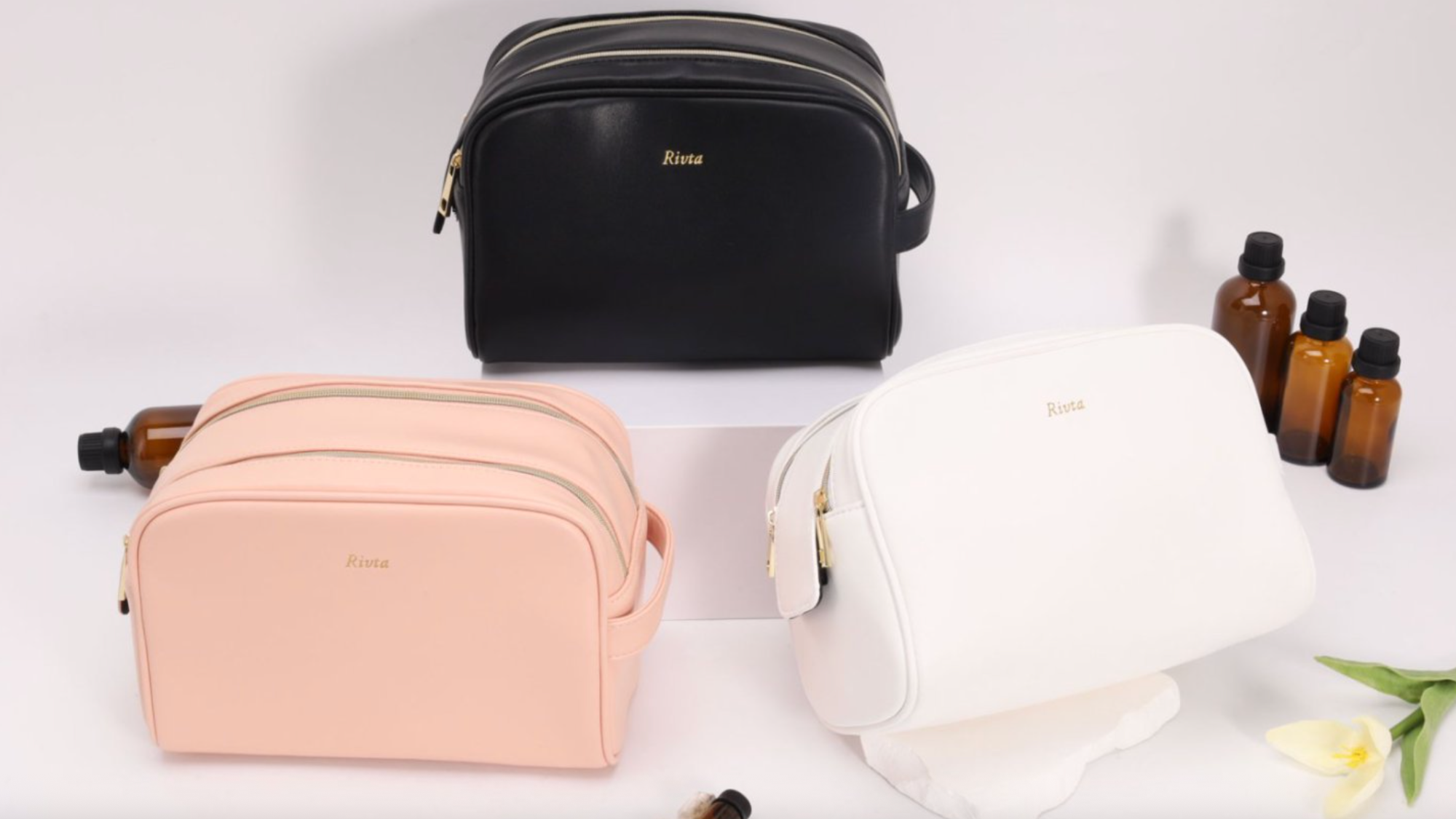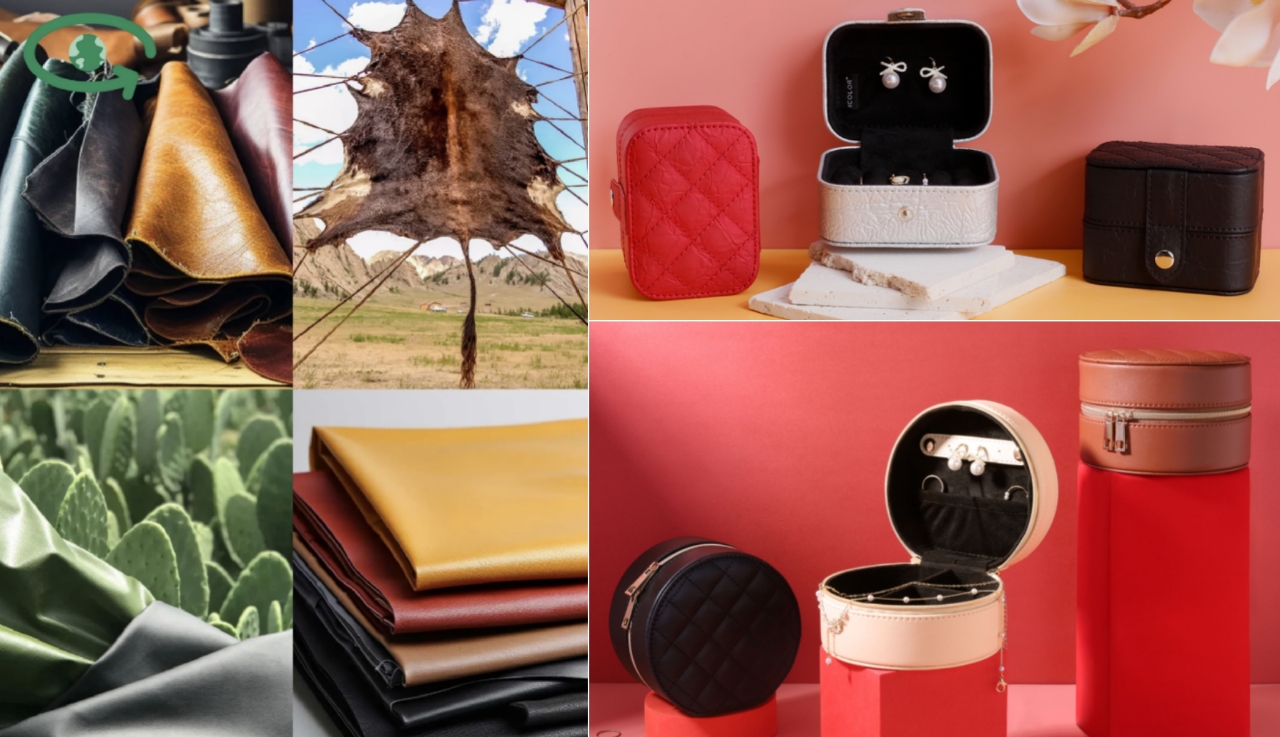Top 15 Eco-Friendly Fabrics for Custom Christmas Cosmetic Bags
As the holiday season nears, brands are looking for sustainable, stylish, and customizable options for their Christmas cosmetic bag collections. This blog highlights the top 15 eco-friendly fabrics for these bags, focusing on their sustainability, durability, and customization potential. Supported by industry data and this guide helps you choose materials that enhance your holiday product line while showcasing your commitment to the environment.
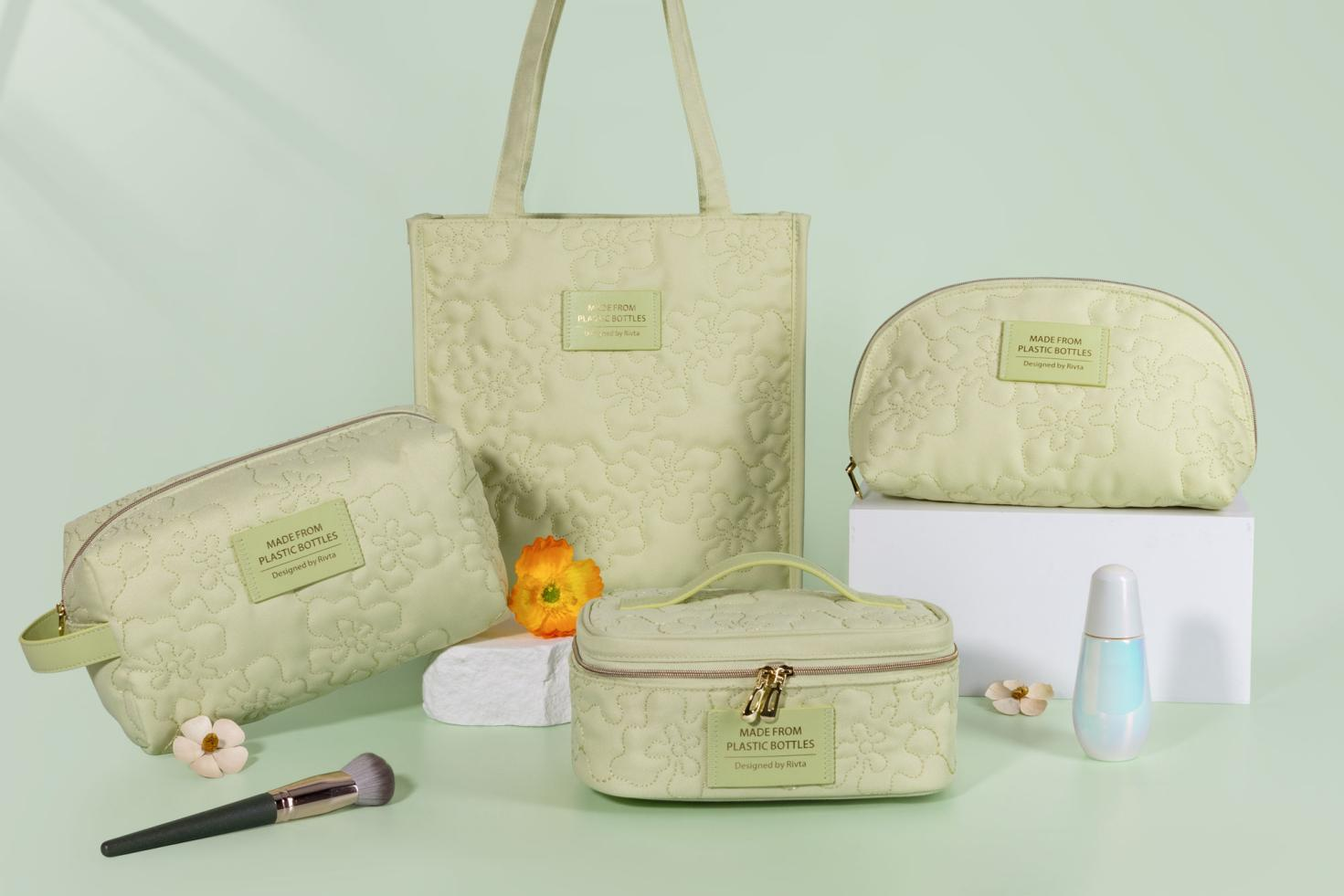
Why Eco-Friendly Fabrics Matter for Christmas Cosmetic Bags
The sustainable fashion market is expected to hit $8.2 billion by 2025, fueled by demand for eco-friendly products (Statista, 2025). For holiday cosmetic bags, eco-friendly fabrics blend festive style with sustainability, perfect for Christmas designs like snowflakes or vibrant colors. These materials need to be durable, customizable, and environmentally responsible. This guide lists the top 15 eco-friendly fabrics with data-driven views to help brand leaders choose materials that align with market trends and appeal to eco-conscious consumers.
Top 15 Eco-Friendly Fabrics for Custom Christmas Cosmetic Bags
1. Organic Cotton
- Sustainability: Grown without pesticides, reducing water and soil pollution (GOTS certification ensures ethical standards).
- Customization: Highly printable and dyeable, perfect for festive patterns like holly leaves or Santa motifs.
- Benefits: Durable, washable, and soft, ideal for everyday use.
- Challenges: Higher cost (approximately 20-30% more than conventional cotton, per Textile Exchange, 2024).
- Best For: Premium holiday gift sets targeting eco-conscious consumers.
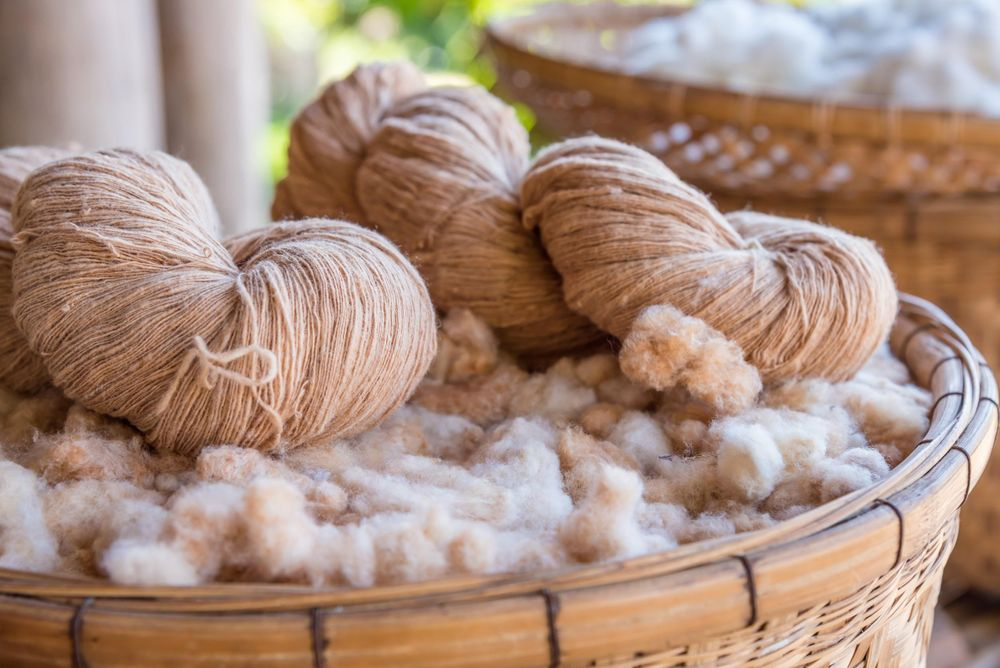
2. Recycled Cotton
- Sustainability: Made from post-industrial and post-consumer waste, reducing landfill use by up to 50% (Textile Exchange, 2024).
- Customization: Supports embroidery and printing for Christmas designs, though speckled texture may influence aesthetics.
- Benefits: Long-lasting and cost-effective compared to organic cotton.
- Challenges: Limited color consistency for intricate holiday patterns.
- Best For: Budget-friendly, high-volume holiday promotions.
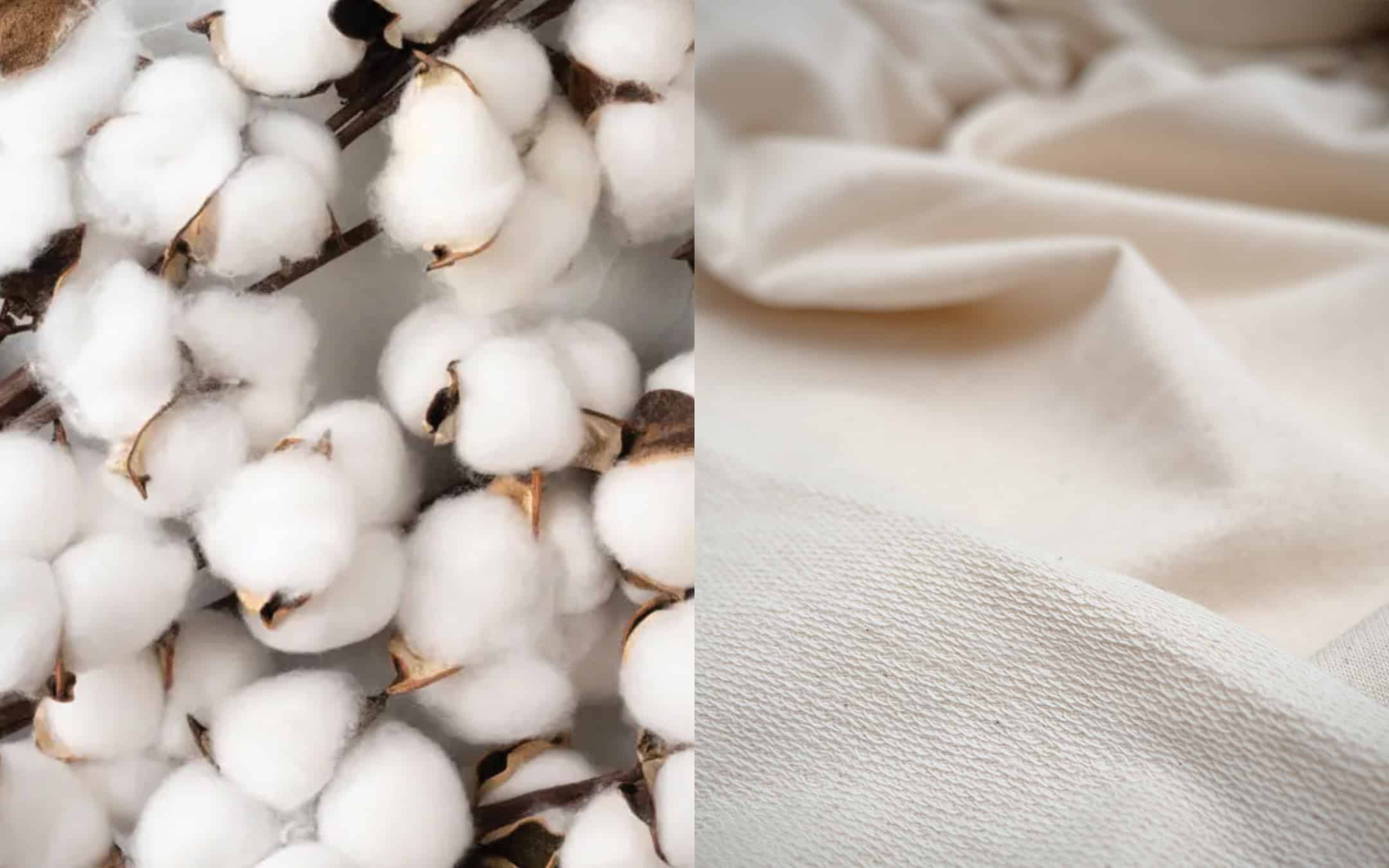
3. Jute
- Sustainability: Biodegradable and renewable, requiring minimal water and pesticides.
- Customization: Rustic texture suits minimalist Christmas designs, such as burlap-style bags with printed snowflakes.
- Benefits: Cost-effective (30% cheaper than cotton blends) and durable.
- Challenges: Coarse texture may not suit luxury holiday branding.
- Best For: Rustic, eco-focused holiday collections.
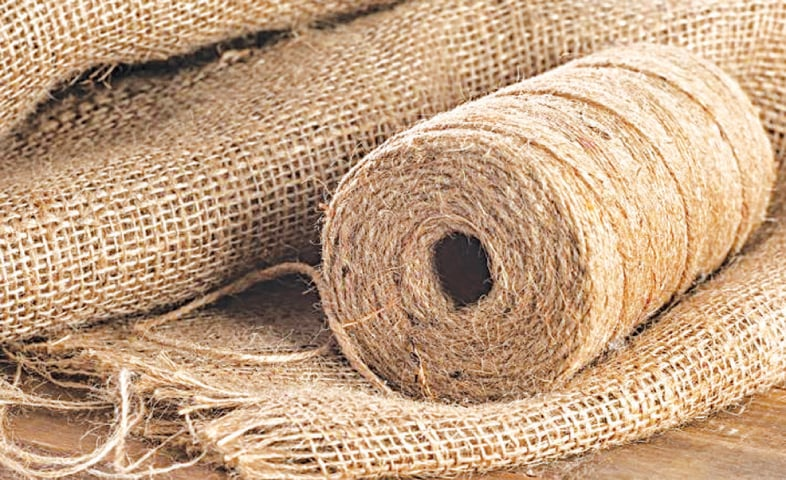
4. Hemp
- Sustainability: One of the most eco-friendly fibers, using 50% less water than cotton (Sustainable Fashion Forum, 2024).
- Customization: Blends well with other fibers for vibrant holiday patterns.
- Benefits: Strong and durable, ideal for long-lasting cosmetic bags.
- Challenges: Higher cost for small batches limits scalability.
- Best For: Niche, high-end holiday gift sets.
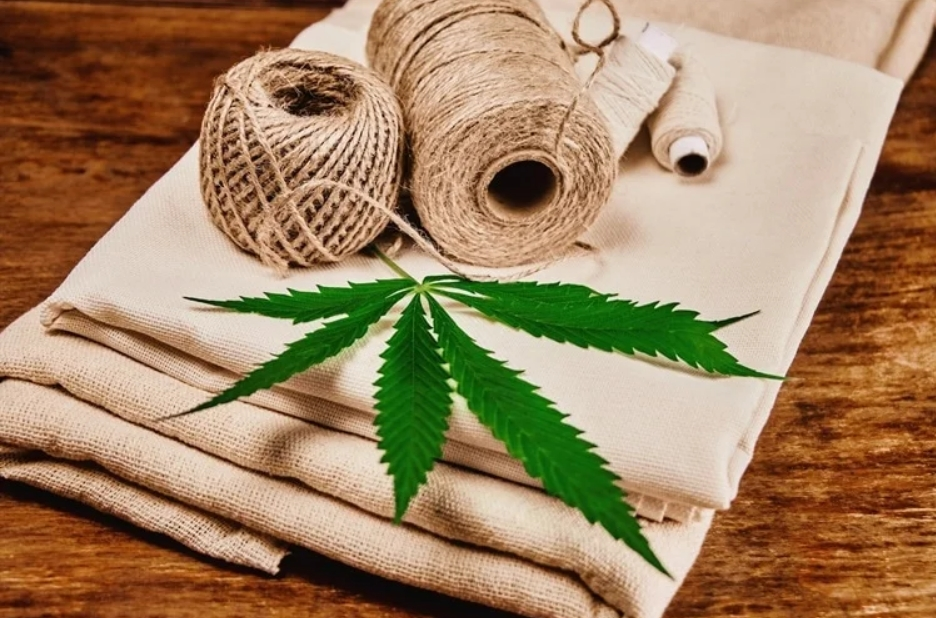
5. Bamboo
- Sustainability: Fast-growing and renewable, but some production methods use harmful chemicals (opt for closed-loop processes).
- Customization: Lightweight and printable, ideal for elegant Christmas designs.
- Benefits: Soft and luxurious, enhancing holiday appeal.
- Challenges: Verify eco-credentials to avoid greenwashing concerns.
- Best For: Premium, lightweight cosmetic pouches.
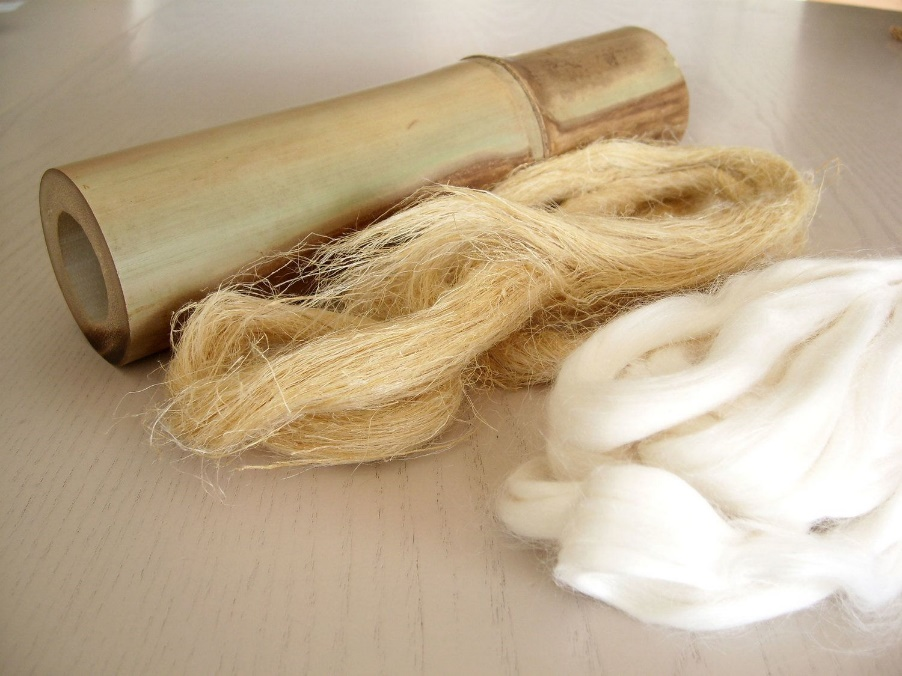
6. Cork
- Sustainability: Harvested from tree bark without cutting trees, 100% renewable (Cork Institute, 2024).
- Customization: Water-resistant and ideal for zipped pouches with festive prints.
- Benefits: Unique texture adds sophistication to holiday designs.
- Challenges: Fragile in thin layers; higher cost for small orders.
- Best For: Luxury holiday gift bags.
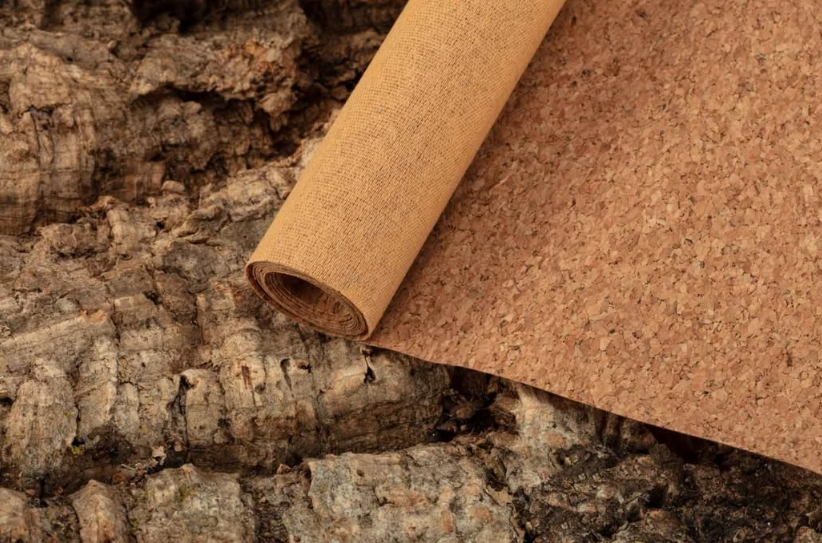
7. Banana Fibre
- Sustainability: Made from agricultural waste, reducing landfill use.
- Customization: Unique texture supports bold Christmas designs.
- Benefits: Biodegradable and strong, ideal for eco-conscious branding.
- Challenges: Limited global availability may increase costs.
- Best For: Unique, crafted holiday collections.
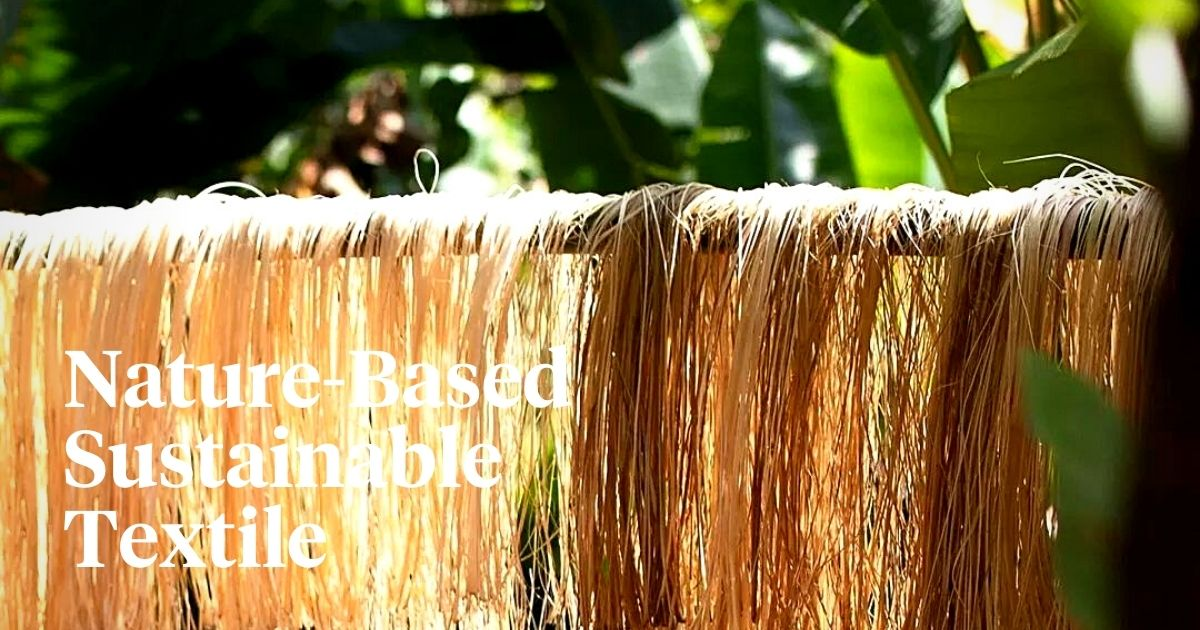
8. Pineapple Fibre
- Sustainability: Vegan and made from pineapple leaf waste, preventing soil erosion (Ananas Anam, 2024).
- Customization: Strong and printable, perfect for festive logos.
- Benefits: Lightweight and durable for holiday travel kits.
- Challenges: Higher production costs (15-20% more than recycled polyester).
- Best For: Vegan-friendly holiday promotions.
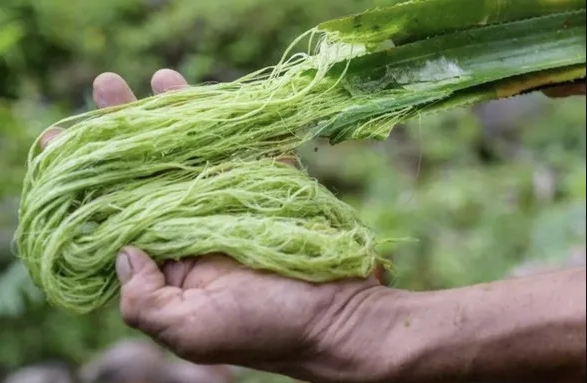
9. Lyocell/Tencel
- Sustainability: Biodegradable, produced in a closed-loop system with 99% water recycling (Lenzing Group, 2024).
- Customization: Soft and dyeable for vibrant Christmas colors.
- Benefits: Luxurious feel enhances holiday gift appeal.
- Challenges: Less durable for heavy use; higher cost.
- Best For: Elegant, eco-conscious holiday gift sets.
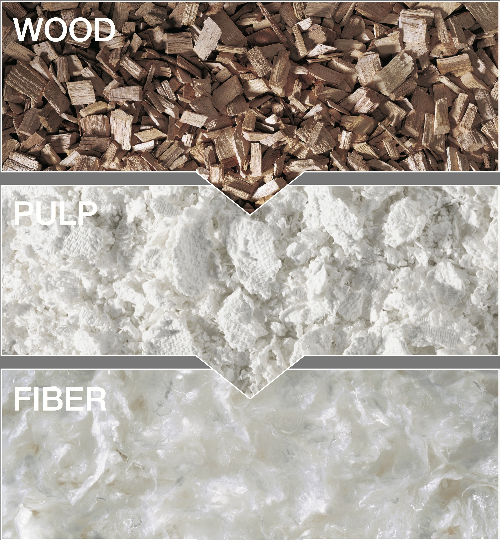
10. Juco (Jute-Cotton Blend)
- Sustainability: Combines jute's biodegradability with cotton's softness.
- Customization: Smooth surface ideal for detailed holiday embroidery.
- Benefits: Durable and cost-effective for bulk orders.
- Challenges: May lack luxury appeal for premium markets.
- Best For: Mid-range holiday cosmetic bags.
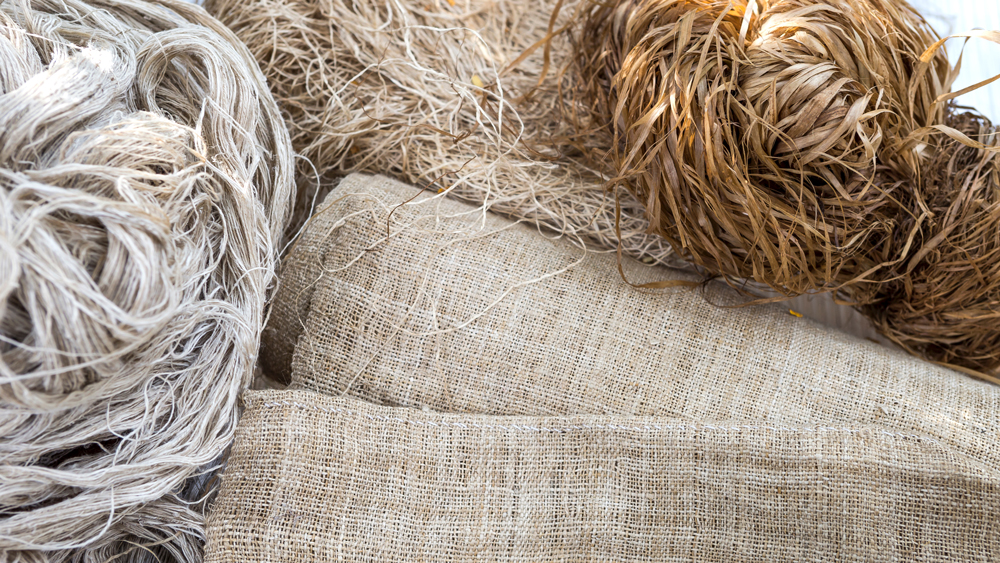
11. Recycled Polyester
- Sustainability: Made from recycled PET bottles, reducing plastic waste by 59% (Textile Exchange, 2024).
- Customization: Water-resistant and highly customizable for festive prints.
- Benefits: Durable and cost-effective for large-scale production.
- Challenges: Synthetic nature limits biodegradability.
- Best For: Water-resistant holiday travel pouches.
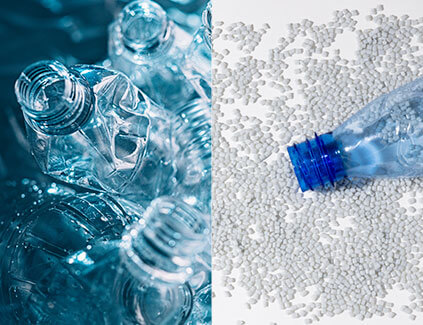
12. Linen
- Sustainability: Made from flax, requiring 60% less water than cotton (Sustainable Fashion Forum, 2024).
- Customization: Luxurious texture suits elegant Christmas designs.
- Benefits: Biodegradable and durable for long-term use.
- Challenges: Wrinkles easily, requiring careful handling.
- Best For: High-end holiday gift bags.
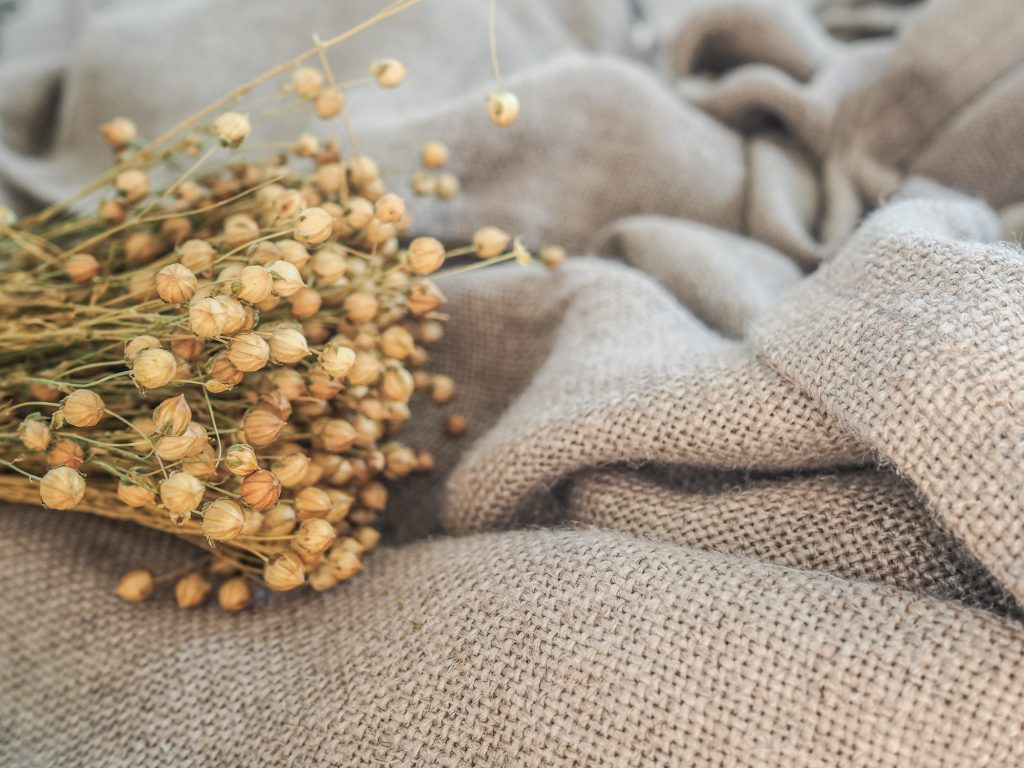
13. Sustainable Wool
- Sustainability: Renewable and biodegradable, sourced from ethical farms.
- Customization: Textured and dyeable for festive designs.
- Benefits: Adds warmth and sophistication to holiday bags.
- Challenges: May felt with washing; less common for bags.
- Best For: Premium, textured holiday collections.
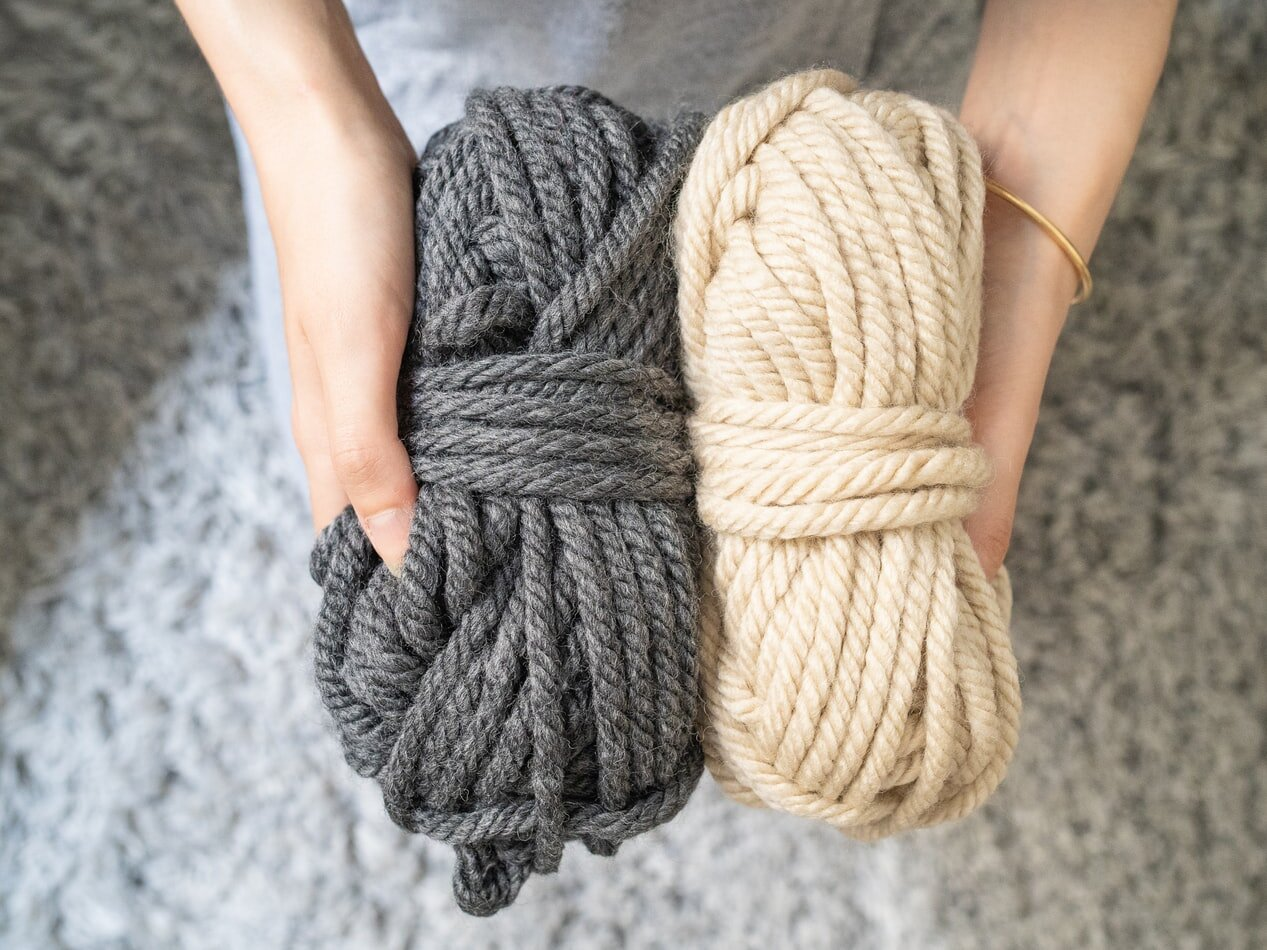
14. Upcycled Materials
- Sustainability: Repurposes textile waste, reducing landfill use by up to 70% (Ellen MacArthur Foundation, 2024).
- Customization: Unique textures create one-of-a-kind Christmas designs.
- Benefits: Highly eco-friendly and creative.
- Challenges: Inconsistent supply may complicate bulk orders.
- Best For: Crafted, limited-edition holiday bags.
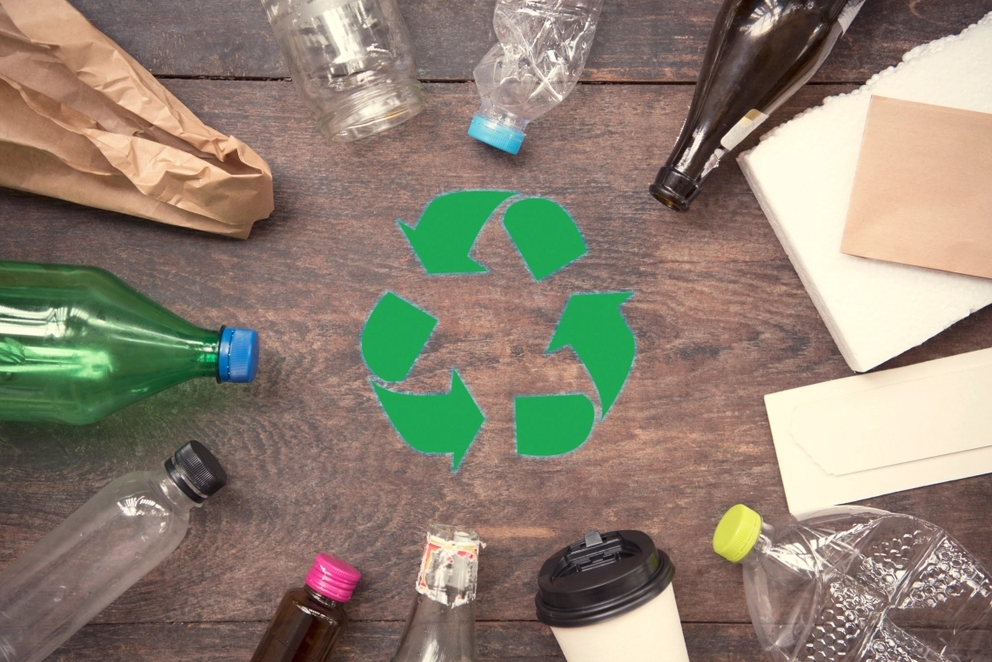
15. Recycled Nylon
- Sustainability: Sourced from fishing nets, reducing ocean plastic by 10% annually (Econyl, 2024).
- Customization: Durable and printable for festive logos.
- Benefits: Water-resistant and strong for travel-friendly bags.
- Challenges: Synthetic; hand-wash only.
- Best For: Durable holiday cosmetic pouches.
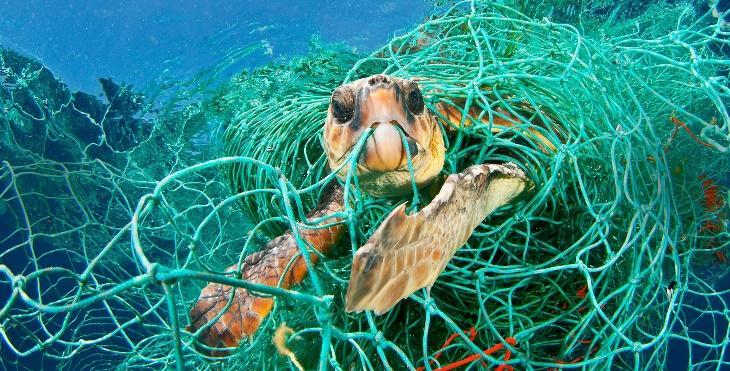
Comparative Fabric Analysis
The table below summarizes the key attributes of these fabrics, helping brand leaders make informed decisions for their Christmas cosmetic bag collections:
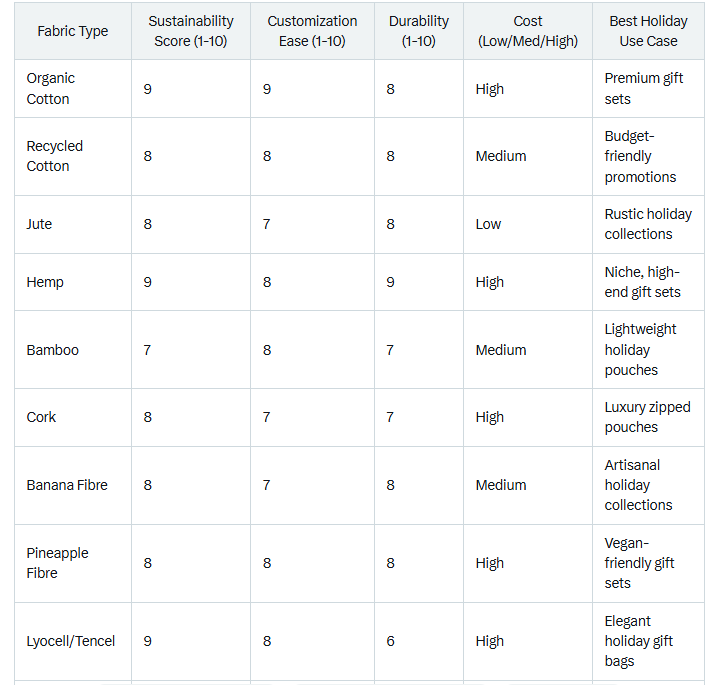
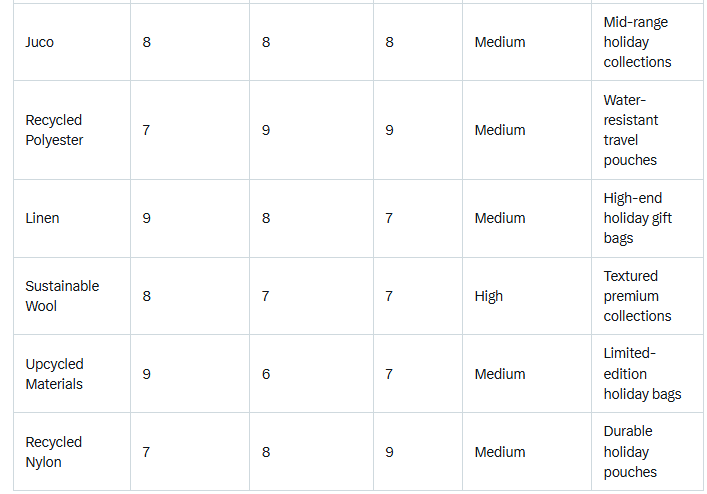
Why Partner with Rivta for Your Christmas Cosmetic Bags?
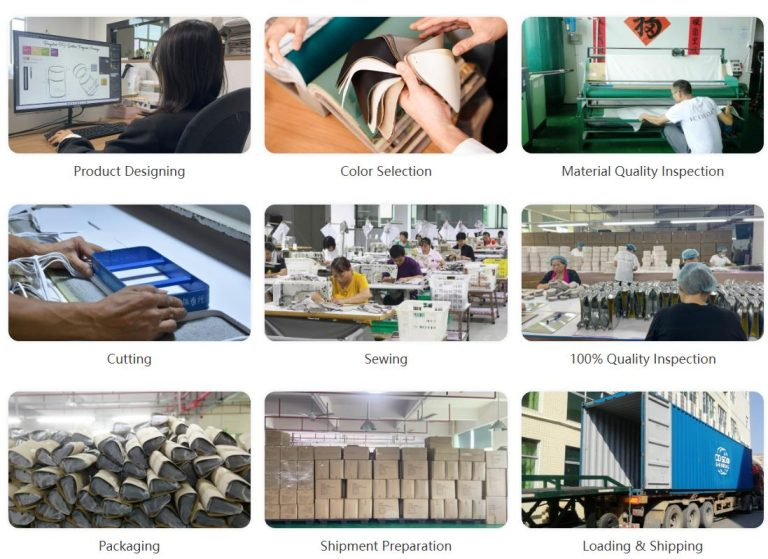
At Rivta Culture Equipment Co., Ltd, we offer end-to-end solutions for eco-friendly cosmetic bags, from design to manufacturing. Our expertise in sustainable fibers ensures that your Christmas collection aligns with global trends and consumer expectations. Here’s how we can support your brand:
Custom Design: Our team collaborates with you to create festive, on-brand designs using eco-friendly fabrics like organic cotton, hemp, and Piñatex.
Sustainable Sourcing: We prioritize GOTS-certified and recycled materials, ensuring transparency and ethical production.
Scalable Production: Whether you need small-batch crafted bags or large-scale holiday collections, our manufacturing capabilities meet your needs.
Global Reach: Serving clients in the United States, Europe, and beyond, we streamline logistics for timely holiday deliveries.
Conclusion: Elevate Your Holiday Brand with Eco-Friendly Fabrics
The holiday season is a prime opportunity to showcase your brand’s commitment to sustainability and style. By choosing eco-friendly fabrics like organic cotton, recycled polyester, or innovative options like pineapple fibre, you can create custom Christmas cosmetic bags that captivate consumers and align with environmental goals. At Rivta, we’re here to bring your vision to life, offering sustainable, high-quality solutions tailored to your brand’s needs.
Ready to launch your eco-friendly Christmas cosmetic bag collection? Contact Rivta Culture Equipment Co., Ltd today to explore our sustainable fabric options and design services. Let’s make this holiday season both festive and sustainable.
